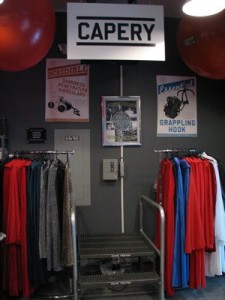 A few years ago, a jobs center in Florida received national criticism after $14,000 was spent on 6,000 capes, which the center intended to hand out to jobless Floridians.
A few years ago, a jobs center in Florida received national criticism after $14,000 was spent on 6,000 capes, which the center intended to hand out to jobless Floridians.
Following media furor, the jobs center canceled its "Cape-A-Bility" PR initiative, which also included a "Which Superhero Are You?" quiz and more than $2,000 spent on cutouts of a "Dr. Evil Unemployment" character.
This incident illustrates arguments in favor of extending Lean management practices into industries outside manufacturing. Had Lean principles been implemented by the jobs center, this ill-fated campaign would never have begun.
Here are a few reasons why.
Lean Management Helps Define Customer Value
Lean management teaches that your product or service's value can only be defined by the end user.
If you are an automotive aftermarket manufacturer, vehicle owners define the value of the equipment you manufacture.
If you are a hospital administrator, patients define the value of your services.
If you happen to be a Florida jobs center, unemployed individuals define the value of your products and services.
If this principle had been considered by jobs center administrators in evaluating budgetary requests for the "Cape-A-Bility" campaign, they would have realized its value had not yet been defined. Further research would likely have included the use of focus groups and the ordering of perhaps one hundred capes to be distributed at a single event.
When that initiative went poorly, the jobs center would have returned to the drawing board and created a different strategy--preferably, one focused on providing value as defined by people served by the center.
Is PR a Product or Service?
In consideration of the above points, one might say, "PR is a marketing strategy for a product or service, not a product or service in and of itself, so why would customer-defined value come into play? Isn't PR intended to influence what customers define as value?"
In the case of a jobs center servicing a community, PR is indeed a service to the center's target audience, in that it communicates the availability of services for job-seekers. The center intended this campaign to uplift unemployed Floridians and restore their self-esteem; a campaign that ultimately was interpreted as condescending was a poor means of providing that service.
PR is not about asking "What can our customers do for us?" It is about asking customers "What can we do for you, and how can we reach you to tell you more about it?"
Excess Inventory is Wasteful
There is one more thing Lean managers know that could have halted the "Cape-A-Bility Challenge" initiative before it became a nationally recognized disaster: Excess inventory is "muda," or wasteful.
Six thousand capes are excessive, particularly because the center placed only 59,000 people in jobs last year.
There is no proven way never to have a bad idea. There is no way to guarantee an organization will never follow up and pursue a bad idea.
However, Lean management provides a number of critical checkpoints that allow managers to reconsider and cancel initiatives that are not meeting expectations.
